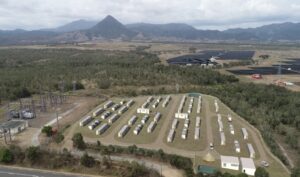The Australian Competition and Consumer Commission (ACCC) is probing the fire risk of lithium-ion batteries and how to minimise it – including in batteries used for residential solar energy storage and in electric vehicles.
In an issues paper published this week, the ACCC says scoping product safety issues and identifying potential hazard prevention strategies for lithium-ion (Li-ion) batteries is a priority for the watchdog this coming year, considering their use in more and more rechargeable devices commonly used in homes.
The main cause for concern for the ACCC at the moment are the Li-ion batteries used for common household appliances, including personal devices like phones and laptops and and tools like cordless vacuums and drills.
But also on the list are increasingly popular personal transportation devices including e–bikes and e–scooters, home renewable energy storage systems and electric and hybrid cars, motorcycles and Vespa–style motor
scooters.
The ACCC recently re-issued a call for 3000 faulty LG and SolaX Power batteries that are yet to be located in Australia, after two earlier recalls in 2021 and this year due to reports of “thermal events”.
About 2,900 batteries have been replaced or removed but LG told the ACCC it had found another 10,000 batteries that are at risk of overheating.
The ACCC said there had been nine reported incidents involving these types of batteries in Australia resulting in property damage and one injury.
“Lithium-ion batteries are extremely volatile and we are very concerned about the growing number of fires and injuries linked to them,” ACCC deputy chair Delia Rickard said this week.
“We are particularly worried as these rechargeable batteries have rapidly become regular household items.
“During the past five years we have received over 200 product safety reports about products with lithium-ion batteries including more than 20 product recalls in Australia, most of which related to consumer products such as laptops and loudspeakers.”
Rising risk as consumers seek cheaper deals
As electric vehicle and home storage become more common, it’s a good time to look into the risk of fires from bigger and bigger li-ion batteries and how best to avoid them.
The key problems, to date, have been from manufacturing defects, aftermarket chargers that are incompatible with the device or non-compliant, overcharging and overheating, and when the battery pack is punctured.
The risk is of “thermal runaway”, the most damaging and catastrophic risk that happens when heat in the battery increases faster than it can be dispersed. The high temperature causes the cell materials to break down in a self-feeding reaction that creates more heat, causing the materials to decompose at a faster rate. A degraded cathode then releases oxygen to further fuel a fire that water cannot extinguish.
“One international regulator indicated that they regarded lithium iron phosphate batteries as having a relatively low failure rate compared to other types and lithium cobalt oxide batteries amongst the most prone to failure,” the issues paper said.
To date, incidents are mainly in personal devices where Li-ion batteries are ubiquitous, but renewable energy storage systems made up 7 per cent of reports to the ACCC between 2017 and 2022.
Alternatives could be difficult to find however.
Li-ion battery substitutions may not be appropriate in many circumstances, safer batteries are slow to emerge, and the ACCC suspects some manufacturers are trading off safety to keep costs down.
The solution, according to the issues paper, could be around consumer awareness, an industry-led code, or regulation as many Li-ion batteries do not fall under existing rules.








